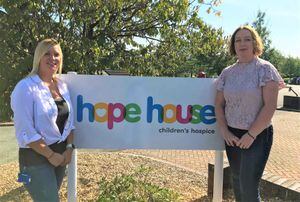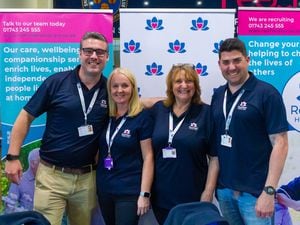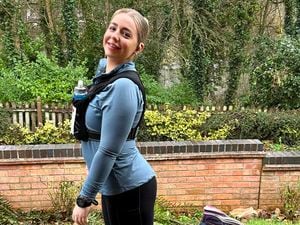Hospice workers study for nursing roles
A pair of hospice support workers have started their education journey to gain new qualifications to bridge the gap between their existing roles and those of registered nurses.

Rachel Bolderstone and Louise Hurdley, from Hope House Children’s Hospice in Oswestry, are combining studying one day a week with the University of Chester’s Faculty of Health and Social Care and on-the-job training to become nursing associates.
The role has been created due to a national shortage in registered nurses. It aims to build more capacity in the nursing workforce and free up registered nurses to focus on more complex clinical duties.
Rachel has worked at Hope House for 11 years and Louise for seven.
Louise said: “Being able to study and work at Hope House means that I can further my skills without having to leave the job I love. It also means that I will continue to receive support from the very experienced nursing team at Hope House.”
Rachel is looking forward to learning more about the clinical side of nursing, and developing her skills.
Investment
Hope House Head of Care Diane Hobday-Hulme, added: “Hope House as an employer has always placed emphasis on, and investment into, training our workforce in order to provide high standards of quality care.
“The importance of children receiving end-of-life care from staff who are known to and trusted by them and their families is well established.”
Nursing Associates undertake a two-year, full-time apprenticeship with the University of Chester that gives them experience across all four fields of nursing as well as within different setting. Trainee Nursing Associates also attend the University one day per week to enable theory to be directly related to their practice settings.
Katie Mansfield-Loynes, Programme Leader for the Nursing Associate programme at the University of Chester, said “The University has worked with Hope House over the past 18 months to ensure that the Nursing Associate role could be fully embedded within their service.
"We are really proud to be able to support dedicated health professionals like Rachel and Louise develop their careers and provide excellent care.”





